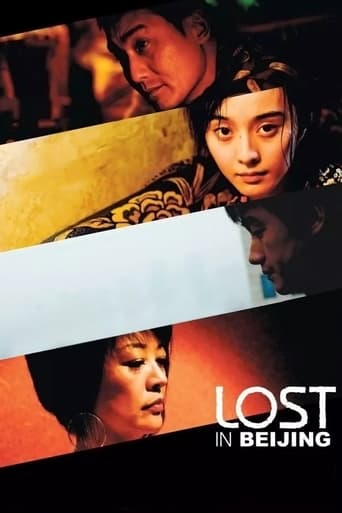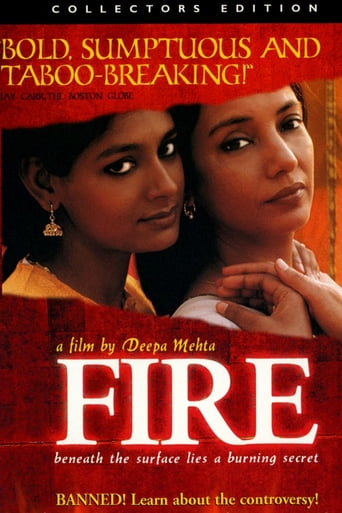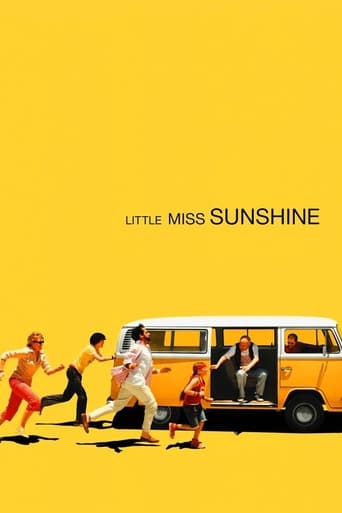

Lost in Beijing (2007)
A look at modern-day life in China's capital centered on a ménage-a-quatre involving a young woman, her boss, her husband and her boss's wife.
Watch Trailer
Cast
Similar titles



Reviews
Highly Overrated But Still Good
Good story, Not enough for a whole film
Good movie, but best of all time? Hardly . . .
Good movie but grossly overrated
Peng Guo is the story of a young provincial Chinese woman in Beijing, Liu Pengguo, caught between the sexual and financial desires and demands of her husband, An Kun, and her boss, Lin Dong.It is said that all cultures pass through certain distinctive stages before reaching decadence and decline. I would like to think that one of these stages, one that comes somewhere towards the end of industrialisation, relates to the need to make rather miserable social realist films with wobbly camera work, jump cuts, shallow focus, piano scores in minor keys, and long takes of (non-professional) actors "acting", which win Golden Somethings at European film festivals. China, it appears, is no exception.OK, I'll admit to being cynical. It is clearly a well-funded, well-produced, and well-observed drama. And I suppose that social realist films don't generally have happy endings, so I shouldn't be smug about that either. Yet, if I had to distil my criticism down to one thing it would be the director's wilful conformity to the "genre". I find myself yearning for Zhang Yimou's films of the late eighties and early nineties, when Chinese film had a real sense of identity. Now it seems to be a mish-mash of various Western influences and little substance, a bit like Mando-pop (just with less smiling). This "conformity" takes on an ironic edge, not just because it was made under a communist government, but because the government banned it. In addition, the producers have been banned from making another film in China for two years, which strikes me as being just enough time to promote this film in Europe, write another one and get some European funding for it! OK, OK, still being cynical. It is a good film. The script is engaging and occasionally quite surprising (especially as we all know it's going to end in tears). The acting is good all round, especially thanks to two Asian cinema stalwarts Tony Leung Ka Fai and Elaine Jin (think Robert De Niro and... um... Juliette Binoche?) playing the boss and his wife, Wang Mei. Elaine Jin steals the show really, creating a character who is both impetuous and enigmatic at the same time. There are some nice insights into Beijing life, which are welcome post-Olympics razzmatazz. The direction is a bit contrived as I have noted, but when director Yu Li finally shakes off film school and gets the camera on a tripod it makes for a nice last few scenes.That said, the film struggles to find its focus. While it's clearly a film about Fan Bingbing's physically and emotionally abused heroine, the POV shifts to that of her husband for large swathes of the narrative and we are left feeling rather sympathetic for him despite his (rather unsubtle) faults. The second act lightens in tone so much that it seems to be heading towards black comedy. The one and only sub-plot involves a prostitute who seems to be there to remind us that the four central characters are not the only ones having a crappy time – and she drops out of the story just as conveniently.And then there's the controversy. Yes, it's got sex in it and no, Beijing wasn't happy with that. Would the film be any different without the sex scenes? Not really - decide for yourself. Two swallows don't make a summer, just as two arses don't make a controversial film necessarily polemical. Mind you, 2007 was quite a year for Hong Kong film royalty showing their posteriors - the other Tony Leung (Chiu Wai) bared his for 'Lust, Caution'... But I digress.If you have watched a lot of these films from emerging economies, you will recognise the format all too well and, given the necessarily downbeat subject matter, the only pleasure might be guessing exactly how everyone is going to plunge into the misery for which they were all destined. Oh well. As films of this genre go it's not bad, so give it a go and make your own mind up.
The story itself seems unlikely, starting when An Kun, a city migrant working as window cleaner, by chance witnesses Liu Pingguo, his wife, being raped by her boss, Lin Dong, the sleazy owner of a massage parlor. Seeing an opportunity, An Kun goes to Lin Dong for hush money. When he refuses, An Kun reveals everything to Lin Dong's wife, Wang Mei. Wang Mei is upset but not surprised at her husband's actions and tells An Kun he will never get the money. However, as a form of compensation, she offers to have sex with An Kun and they start an affair. These two couples are brought closer together when Pingguo becomes pregnant and there is uncertainty about who the father is. Since Lin Dong desperately wants a son, he now willingly offers compensation. An Kun accepts the money but becomes increasingly uncertain of his decision to give up the child.As farcical as this plot may seem, everything is handled in a realistic way. Even the story in some way represents the common dilemmas faced by immigrants to the big city. Personalities are nuanced. Characters are neither wholly abusive and evil nor passive and innocent. Every detail in the environment is authentic, modern China. The acting, and cinematography are brilliant. Beijing is remorseless, cold and bleak. The city provides opportunity and wealth but not without cost. Broadly speaking, this film is a social commentary about greed and desire and elusive satisfaction of modern life.
China's weird. Didn't we just learn from the Olympic Committee that there's billions of people living there? I think we did. Why then is this one of only a few films I can think of, off the top of my head, coming from there that has any semblance of lived-life-now? Lived life now under peculiar circumstances, sure, because it is a movie after all, but still. Everything else seems to be costumed drama kung fu palace historical Mao-sanctioned fantasy crap. I'm talking mainland China here. Taiwan and Hong Kong don't count. Ang Lee doesn't count. All the Chinese filmmakers making films in other parts of the world, and getting them financed and released in other parts of the world, don't countand there's the rub.Lost in Beijing is banned in China and its filmmakers are banned for two years from making films in China. What kind of nonsensical time-out is that? I mean no disrespect to the Chinese, I just want more of them to fall through the cracks and make films like Lost in Beijingwhich is nothing like Farewell My Hero's Kingdom of Flying Yellow Flowers.Fan Bingbing, known in the west as Bingbing Fan, stars in this film as Liu Ping Guo (Ping Guo, the Chinese title, translates literally as "Apple"), a foot massage girl who is raped by her boss (played out-of-this-worldly great by Tony Leung Ka Fai who's been in enough movies that every Chinese citizen could pick a film of his to see without any two people seeing the same filmwestern audiences may know him as the guy who has sex with Marguerite Duras in The Lover), and the rape is witnessed by her husband, a window washer who just happens to be hanging from a scaffolding washing the windows of the room at the massage parlor where the rape takes place. Foot massage is big business in China so I guess that's why this massage parlor is some kind of skyscraper that needs these scaffolded window washers, but I digress. The husband sees this as an opportunity to milk a little money from the well to do parlor owner. Lost in Beijing turns a critical eye toward the new moneyed urban class set against the rural, immigrant-in-their-own-country, if you will, working class.Bingbing's husband confronts Tony's wife with the rape news and demands money for his pain and suffering, yes, you read that right, his pain and suffering. Tony's wife laughs at him and suggests a better revenge would be for him to have sex with her, and then in a moment of barely noticed brilliance while she's riding him cowgirl puts sunglasses on him so she can't see him looking at her.It turns out Bingbing is pregnant and things get a little more complicated. If you complain when a film uses overly convenient plot devices to move forward you probably won't like this film as much as I do. I'm more concerned with the caliber of the characters. All four of the main performances in Lost in Beijing are magnificent. (Tony's relationship with, and handling of, his over sized wallet/day-planner is hilarious, as is his response of randomly checking the top of his head for bald spots when he's busted for trying to use a mirror to peek at Bingbing in the shower.) The direction is good and the camera-work creative, sometimes a little too creative to the point where I got dizzy a couple times so I'm deducting a point for that. Beijing is the backdrop here, captured in all its beautiful gray and desolate self.
What happens to a collectivist, traditional society after it is traumatized by two extreme social experiments within a period of half a century dehumanizing communism and equally alienating rampant materialism? Perhaps the best film to come out of mainland China in a decade, Yu Li's Ping Guo is both a scathing social commentary on the state of present day China and a moving human drama. The film, as well as its characters, looks like Beijing: Grey, polluted, crowded and confused. Acting is uniformly excellent. Bingbing Fan, the stunning young actress with morning-after eyes, is superb in the title role as the all-too-human Ping Guo. As the story unfolds and the humanity of the other three leads begin to rise above their greed and apathy, Ping finds her inner strength. The ending, which should be predictable, comes as a touching surprise.Others have commented enough on the story. It is best to walk into this film without knowing too much about it. If you are a frequent visitor to China or an observer of its mind-blowing ascent, the film will have more to say to you. However, both the story and the characters are universal. Even a passing knowledge of that fascinating society is sufficient to enjoy this minor masterpiece, although you might miss its many subtle ironies.Chinese authorities banned the film from being shown in China. They also banned its producers from working in the industry for two years. The decision, which is almost an unofficial award, won't stop those who want to watch it.









